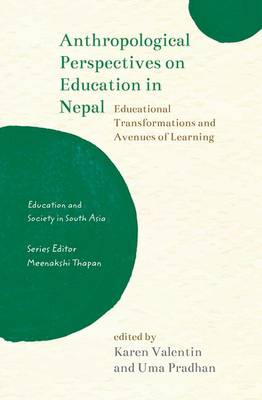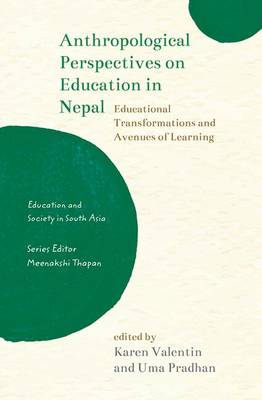
- Afhalen na 1 uur in een winkel met voorraad
- Gratis thuislevering in België vanaf € 30
- Ruim aanbod met 7 miljoen producten
- Afhalen na 1 uur in een winkel met voorraad
- Gratis thuislevering in België vanaf € 30
- Ruim aanbod met 7 miljoen producten
Zoeken
Anthropological Perspectives on Education in Nepal
Educational Transformations and Avenues of Learning
Karen Valentin
€ 185,45
+ 370 punten
Omschrijving
What is education, and who counts as an 'educated person' amidst competing religious, political, and pedagogical ideologies, which have shaped contemporary educational practices and institutions in Nepal? How have social and political changes, an increasing commodification of education, a continued reliance on foreign aid, and expanded geographical horizons contributed to a reshaping of the educational landscape of Nepal and thereby altered, opened up, and closed avenues of learning available to the Nepali people? Grounded in the intersection between anthropology, sociology, and development studies, and based on rich ethnographic evidence, the essays in this edited volume illuminate educational transformations and avenues of learning in the context of wider social and political changes in Nepal. They capture diverse and competing educational experiences and trajectories; examine the process of construction and transmission of knowledge in different sites within and beyond
institutions of formal education; and explore the interconnections between education, state, and society.
institutions of formal education; and explore the interconnections between education, state, and society.
Specificaties
Betrokkenen
- Auteur(s):
- Uitgeverij:
Inhoud
- Aantal bladzijden:
- 334
- Taal:
- Engels
- Reeks:
Eigenschappen
- Productcode (EAN):
- 9780192884756
- Verschijningsdatum:
- 5/10/2023
- Uitvoering:
- Hardcover
- Formaat:
- Genaaid
- Afmetingen:
- 147 mm x 206 mm
- Gewicht:
- 544 g

Alleen bij Standaard Boekhandel
+ 370 punten op je klantenkaart van Standaard Boekhandel
Beoordelingen
We publiceren alleen reviews die voldoen aan de voorwaarden voor reviews. Bekijk onze voorwaarden voor reviews.








